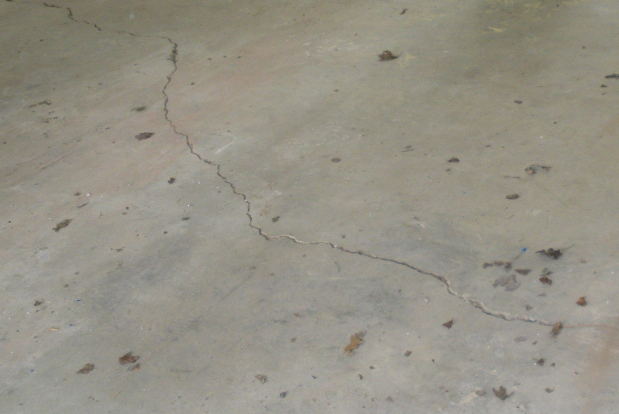
Concrete frequently cracks no matter how well the contractor has done his job. Despite concrete’s unmatched surface durability, it is susceptible to the damage associated with annual freeze/thaw cycles. Some concrete cracks are no problem, but others can allow moisture to come up through the slab and damage flooring and perhaps some furnishings. Identifying the potential risks of cracking is most often an issue when you’re trying to sell or buy a home. Cracks in the concrete of your foundation or other slabs can reduce the value of your home. On the other hand, if you’re a buyer, the last thing you want to do is buy a home without realizing there’s several thousand extra dollars of work coming down the line in just a few years or even months.
Home Inspectors
For your own peace of mind, you’ll want to ensure a home is of sound structural integrity before you buy it. This situation is tailor-made for a home inspector. Contact a reputable home inspector and pay for a report about the severity of the cracks in the concrete. If he says the cracks are acceptable, then you can relax. But, take some pictures and keep the report just in case they get worse since a builder must warranty a house for latent defects for 10 years. And, if the inspector recommends they should be fixed, show the report to your builder. If he refuses to do anything, tell him you will be filing a complaint with the State License Board with the report.
Ready to start your Concrete Cracks?
Find ProsCracks in Concrete Flooring
Sometimes cracks occur in your concrete subflooring unrelated to your foundation or the general structure of your home. Often, these cracks are noticed when the floor above the concrete slab becomes damaged by the uneven concrete. Usually the damage of both floors is caused by the presence of water. You’ll first need to locate the source of this water or moisture problem and fix it first. Then, you’ll most likely need to remove the old flooring, seal the concrete, and install new flooring.
Sometimes, concrete cracking can occur separately from the presence of moisture, although water almost always finds these cracks eventually. Homes with above average drainage in their yard will divert water away from the home and can delay any damage to cracks in their concrete subflooring, almost indefinitely.
Concrete Cracking
Of course, cracking is a problem that can happen to any kind of concrete. If you have cracks in a surface that was recently poured, chances are the mix was of inferior quality or proper installation techniques weren’t followed. When this happens, it’s time to talk to your contractor about replacing your concrete. Hopefully, you have a contract that includes some kind of warranty, but depending on the nature of the concrete failure, the contractor may still be responsible for replacing your concrete. If your outdoor slab is undergoing standard weathering and cracking, you may be able to apply an epoxy sealer, but you don’t want to repair old concrete if the a contractor warns you new cracks may soon form, anyway. Eventually, even the toughest concrete slabs will need to be replaced or, at least, have new concrete poured over the old.
 Concrete Flooring – Solid as a Rock
Concrete Flooring – Solid as a Rock  How to Choose a Concrete Contractor
How to Choose a Concrete Contractor  Concrete Mudjacking
Concrete Mudjacking  Explore the Possibilities of Concrete Siding
Explore the Possibilities of Concrete Siding  Concrete Foundation Problems
Concrete Foundation Problems 

Are You Familiar With This Topic? Share Your Experience.